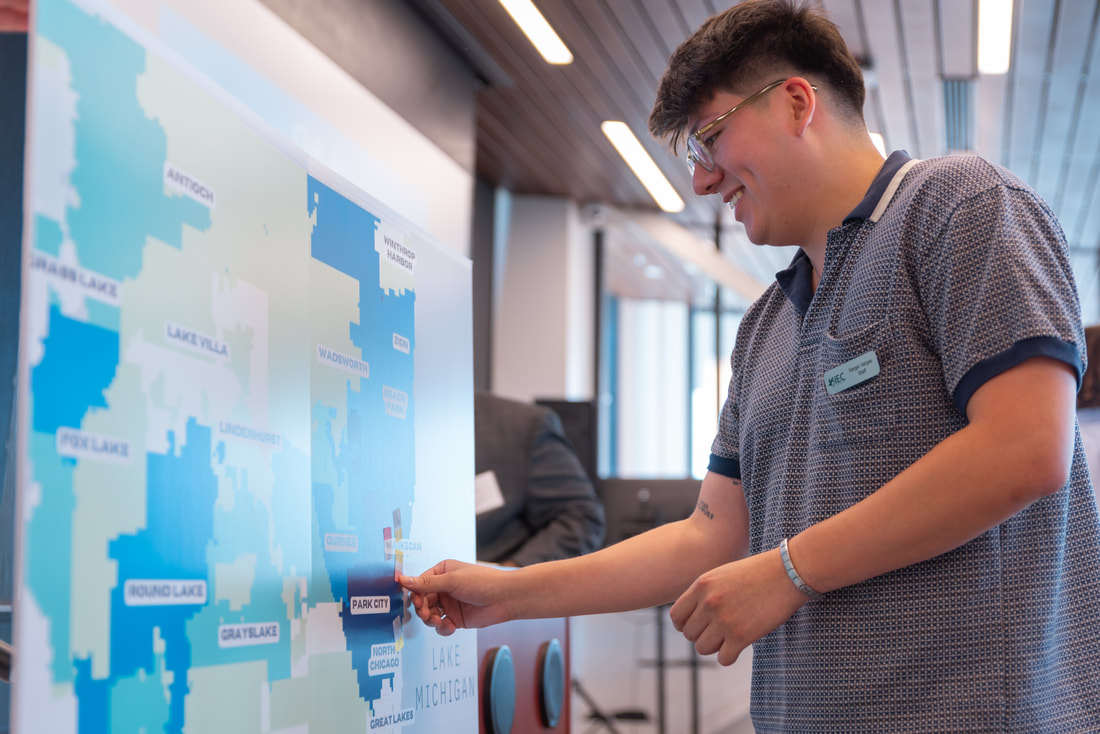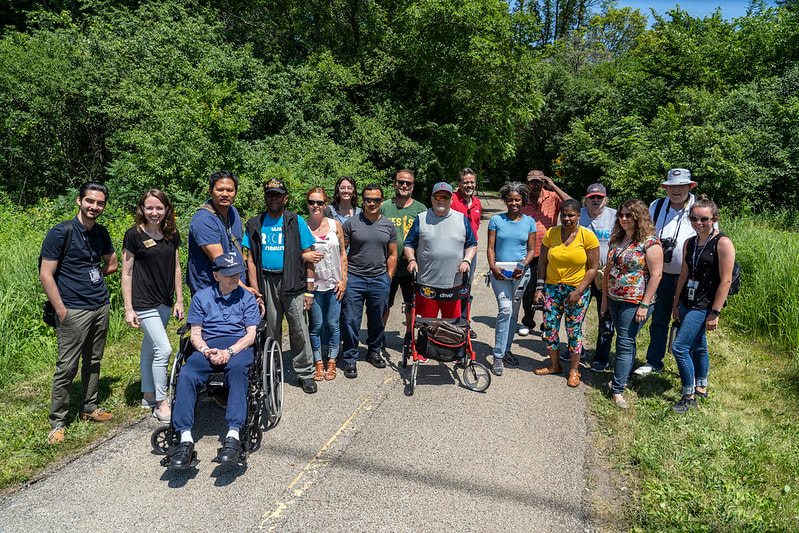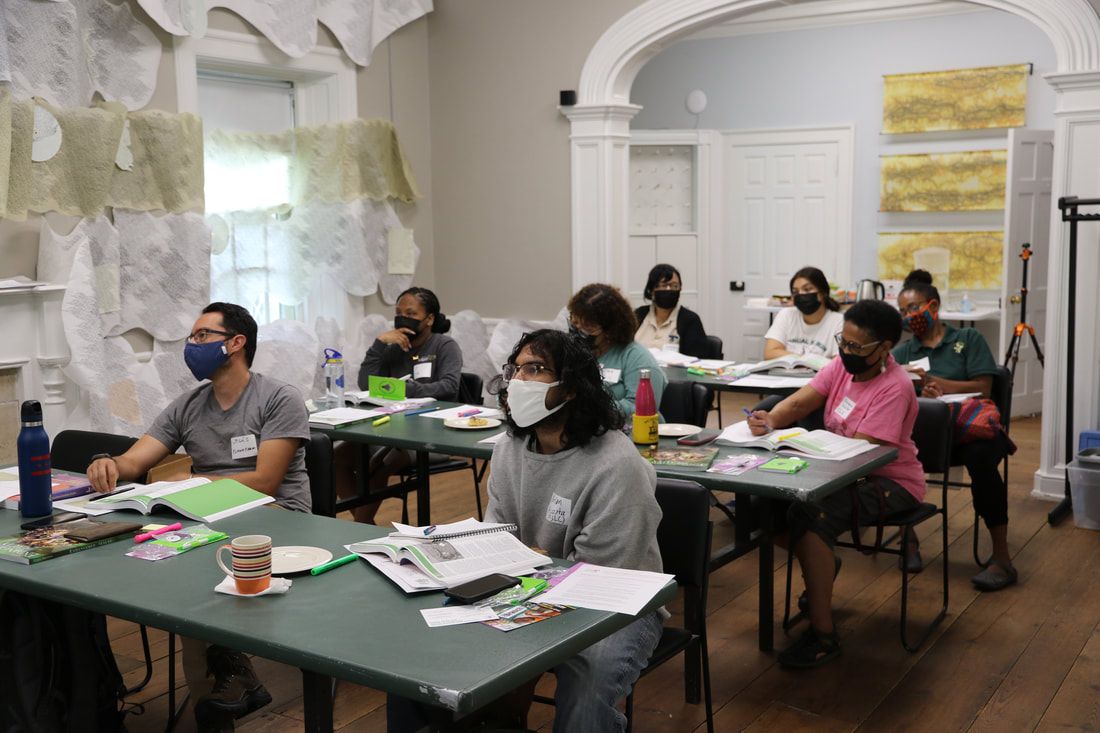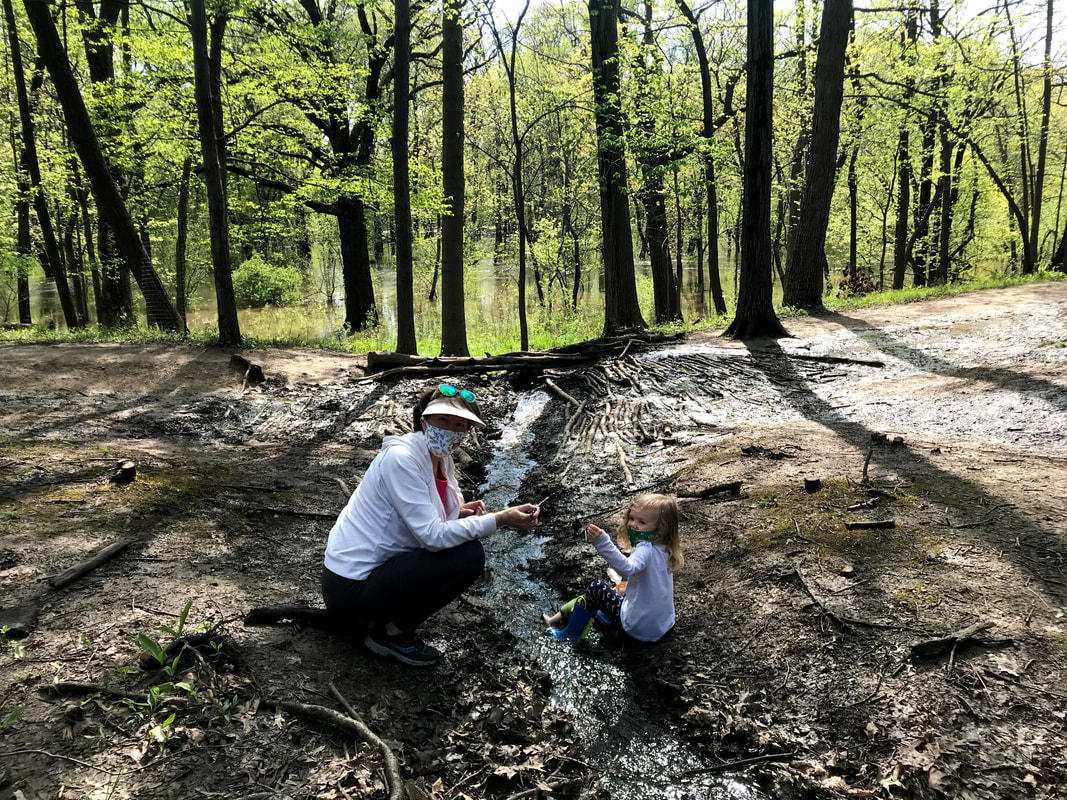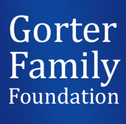Launched in 2022, Brushwood Center’s Health, Equity, and Nature Accelerator was born in response to growing community demand and momentum for systemic change to address inequities at the intersection of health, climate, and nature. The Accelerator activates equitable nature-based solutions through community and healthcare partnerships.
The Accelerator's newest report, Health, Equity, and Nature: A Changing Climate in Lake County, IL, is a tool for community members, organizations, and decision-makers to implement equitable, nature-based policy decisions to improve our communities’ health and wellbeing. This report includes key findings about access to nature, human health, and a healthy environment in Lake County, as well as actionable recommendations to empower change.
The Accelerator's newest report, Health, Equity, and Nature: A Changing Climate in Lake County, IL, is a tool for community members, organizations, and decision-makers to implement equitable, nature-based policy decisions to improve our communities’ health and wellbeing. This report includes key findings about access to nature, human health, and a healthy environment in Lake County, as well as actionable recommendations to empower change.
Core Focus Areas:
The COVID-19 pandemic brought longstanding disparities in accessing healthcare and a healthy environment to light. These disparities disproportionately impact Black and Brown communities. While Brushwood Center has focused on serving the Lake County community through programs, the pandemic led us to explore the root causes of inequities and tackle them first and foremost with a report showing the current landscape of health inequities, nature access, and environmental justice in Lake County.
The Health, Equity, and Nature Accelerator is an expansion of Brushwood Center’s ongoing community engagement, advocacy, and research initiatives, and it will amplify this impact through cross-project alignment, prioritization of community-driven practices, and communication of key results for scalability and collaboration.
The Accelerator includes three primary focus areas:
The Health, Equity, and Nature Accelerator is an expansion of Brushwood Center’s ongoing community engagement, advocacy, and research initiatives, and it will amplify this impact through cross-project alignment, prioritization of community-driven practices, and communication of key results for scalability and collaboration.
The Accelerator includes three primary focus areas:
1. DATACommunity-driven data is vital to advance equitable access to nature and enhance support for nature-based solutions.
The Accelerator convened a 16-member Community Advisory Board to guide the development of the first report in Lake County documenting health, equity, and nature data to mobilize constituents and inform policy and decision-makers. |
2. INVESTMENTThe Accelerator is piloting a model for nature-based healthcare solutions with local community health centers. Through interviews with 27 healthcare leaders across the region and nation, we identified potential healthcare finance mechanisms to drive equity-centered models.
|
3. CAPACITY + AWARENESSThe Accelerator also aims to provide professional development to local healthcare providers and community health workers on nature-based assets and environmental justice in Lake County. This includes collaboration in the Chicago region as well as through national and regional coalitions.
|
View Past Publications and Events:
Regional and National Collaborations:
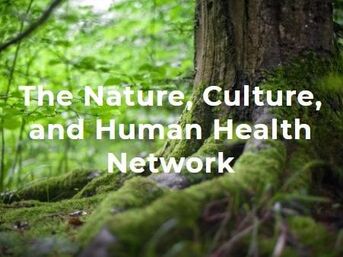
REGIONAL COLLABORATION
The Nature, Culture, and Human Health (NCH2) Network is a Chicago-region collaborative that connects people with interests in investigating and applying knowledge about the health benefits of nature to improve the health and well-being of our communities. Brushwood Center serves on the Steering Committee of NCH2. |
COPING AND NATURE DURING COVID-19 SURVEY (CANS)
Brushwood Center is partnering with research institutions across the country, under the leadership of Dr. Terry Horton of Northwestern University, to understand the impact of access to nature on health and wellbeing during COVID-19. |
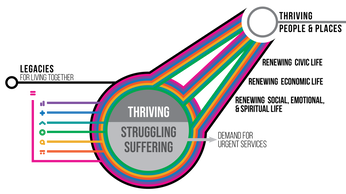
THRIVING TOGETHER: A NATIONAL SPRINGBOARD The Thriving Together Springboard by the Well Being Trust, is a practical resource for everyone wanting to help America heal through the trauma of 2020 and secure the vital conditions that all people and places need to thrive. Learn more about this framework for equitable recovery and resilience. |
Thank You to Our Accelerator Sponsors:
REFERENCES
American Public Health Association. (2014, July 8). Improving Health and Wellness through Access to Nature. Retrieved November 16, 2021, from https://www.apha.org/policies-and-advocacy/public-health-policy-statements/policy-database/2014/07/08/09/18/improving-health-and-wellness-through-access-to-nature
Buckley, R., Brough, P., Hague, L., Chauvenet, A., Fleming, C., Roche, E., Sofija, E., & Harris, N. (2019). Economic value of protected areas via visitor mental health. Nature communications, 10(1), 5005. https://doi.org/10.1038/s41467-019-12631-6
Cole, H., Garcia Lamarca, M., Connolly, J., & Anguelovski, I. (2017). Are green cities healthy and equitable? Unpacking the relationship between health, green space and gentrification. Journal of epidemiology and community health, 71(11), 1118–1121. https://doi.org/10.1136/jech-2017-209201
Frumkin, H., Bratman, G. N., Breslow, S. J., Cochran, B., Kahn, P. H., Jr, Lawler, J. J., Levin, P. S., Tandon, P. S., Varanasi, U., Wolf, K. L., & Wood, S. A. (2017). Nature Contact and Human Health: A Research Agenda. Environmental health perspectives, 125(7), 075001. https://doi.org/10.1289/EHP1663
Grima, N., Corcoran, W., Hill-James, C., Langton, B., Sommer, H., & Fisher, B. (2020). The importance of urban natural areas and urban ecosystem services during the COVID-19 pandemic. PloS one, 15(12), e0243344. https://doi.org/10.1371/journal.pone.0243344
Novara, M., Loury, A., & Khare, A. (2017, March). The Cost of Segregation. Metropolitan Planning Council. https://www.metroplanning.org/uploads/cms/documents/cost-of-segregation.pdf
Patz, J. A., Frumkin, H., Holloway, T., Vimont, D. J., & Haines, A. (2014). Climate change: challenges and opportunities for global health. JAMA, 312(15), 1565–1580. https://doi.org/10.1001/jama.2014.13186
Paulson Institute. (2021, November 11). Financing Nature: Closing the Global Biodiversity Financing Gap. Retrieved November 16, 2021, from https://www.paulsoninstitute.org/conservation/financing-nature-report/
American Public Health Association. (2014, July 8). Improving Health and Wellness through Access to Nature. Retrieved November 16, 2021, from https://www.apha.org/policies-and-advocacy/public-health-policy-statements/policy-database/2014/07/08/09/18/improving-health-and-wellness-through-access-to-nature
Buckley, R., Brough, P., Hague, L., Chauvenet, A., Fleming, C., Roche, E., Sofija, E., & Harris, N. (2019). Economic value of protected areas via visitor mental health. Nature communications, 10(1), 5005. https://doi.org/10.1038/s41467-019-12631-6
Cole, H., Garcia Lamarca, M., Connolly, J., & Anguelovski, I. (2017). Are green cities healthy and equitable? Unpacking the relationship between health, green space and gentrification. Journal of epidemiology and community health, 71(11), 1118–1121. https://doi.org/10.1136/jech-2017-209201
Frumkin, H., Bratman, G. N., Breslow, S. J., Cochran, B., Kahn, P. H., Jr, Lawler, J. J., Levin, P. S., Tandon, P. S., Varanasi, U., Wolf, K. L., & Wood, S. A. (2017). Nature Contact and Human Health: A Research Agenda. Environmental health perspectives, 125(7), 075001. https://doi.org/10.1289/EHP1663
Grima, N., Corcoran, W., Hill-James, C., Langton, B., Sommer, H., & Fisher, B. (2020). The importance of urban natural areas and urban ecosystem services during the COVID-19 pandemic. PloS one, 15(12), e0243344. https://doi.org/10.1371/journal.pone.0243344
Novara, M., Loury, A., & Khare, A. (2017, March). The Cost of Segregation. Metropolitan Planning Council. https://www.metroplanning.org/uploads/cms/documents/cost-of-segregation.pdf
Patz, J. A., Frumkin, H., Holloway, T., Vimont, D. J., & Haines, A. (2014). Climate change: challenges and opportunities for global health. JAMA, 312(15), 1565–1580. https://doi.org/10.1001/jama.2014.13186
Paulson Institute. (2021, November 11). Financing Nature: Closing the Global Biodiversity Financing Gap. Retrieved November 16, 2021, from https://www.paulsoninstitute.org/conservation/financing-nature-report/
